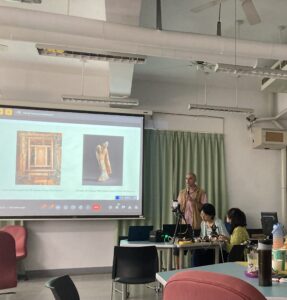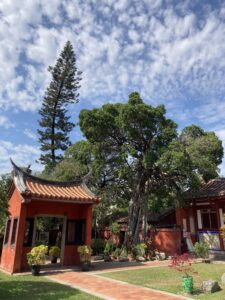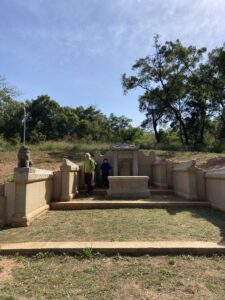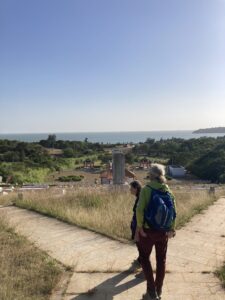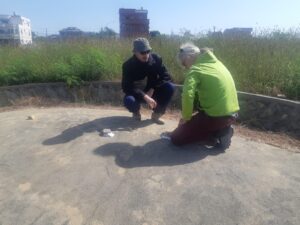Between 7 and 23 November 2023, our researchers Dr. Anna Sokolova and Massimiliano Portoghese conducted a period of academic fieldwork and scholarly engagement in Taiwan.
During this time, they were invited to present their research at the 2023 DRGPA Conference (Documenting and Researching Gravesites in Pacific Asia), held at National Kaohsiung University (國立高雄大學). The invitation was extended by Professor Oliver Streiter. Massimiliano’s presentation, entitled “How to Treat a Dead Body: The Introduction of Buddhist Funerary Practices in Six Dynasties (220–589) China”, explored early Buddhist mortuary rituals in China and the cultural tensions surrounding the treatment of the body after death during the Six Dynasties period. Anna’s talk, titled “Stone Epigraphy as a Historical Source of Material on Death Rituals in Tang Dynasty China”, highlighted how inscribed stone stelae provide insight into funerary practices and cultural attitudes toward death in Medieval China.
In conjunction with the conference, Anna and Massimiliano also participated in a four-day fieldwork training session on Kinmen Island (金門). This practical component of the DRGPA program provided valuable hands-on experience in grave documentation and analysis, offering new methodological insights.
In addition to the conference and field training, Massimiliano was honored to be invited by Professor Lin Peiying to deliver a guest lecture at National Chengchi University (政治大學). The lecture, titled “Etiquette of Bodily Postures in Ancient and Early Medieval China: Debates on Sitting Positions,” was presented as part of the MA course “Buddhism and Society.” The session was well attended and stimulated a lively discussion on the ritual and symbolic dimensions of bodily comportment in premodern Chinese religious and philosophical traditions.
This trip provided Anna and Massimiliano with an invaluable opportunity to share their research with a broader academic audience, receive constructive feedback, and develop interdisciplinary connections. Moreover, the fieldwork in Kinmen significantly enhanced their practical understanding of burial contexts and material evidence.
